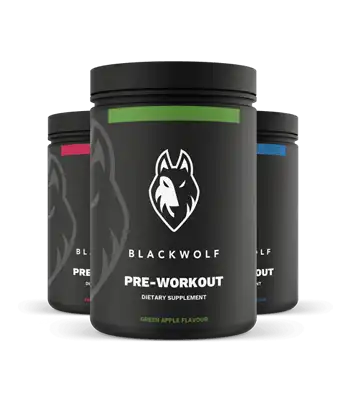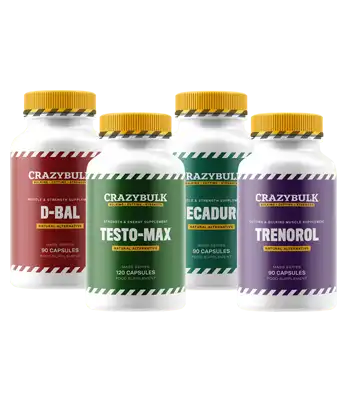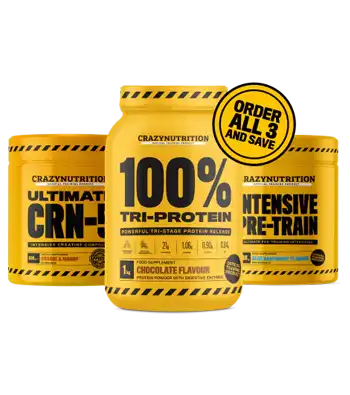Hey there, fitness enthusiasts! Today, we’re diving deep into a hot topic that’s been buzzing in gyms and nutrition forums everywhere: mass gainer supplements vs whole foods. If you’re looking to pack on some serious muscle, you’ve probably wondered which approach is best. Well, grab a best protein shakes for muscle gain (or a chicken breast) and let’s get into it!
The Great Debate: Pills or Plates?
First things first – there’s no one-size-fits-all answer here. Your perfect bulking strategy depends on your goals, lifestyle, and what works for your body. But don’t worry, we’re going to break down both options so you can make the best choice for your gains.
Mass Gainer Supplements: Convenience in a Scoop
Let’s start with mass gainer supplements. These powdered powerhouses are designed to help you bulk up fast. But are they all they’re cracked up to be? Let’s weigh the pros and cons.
The Good Stuff
- Calorie Bombs: The best muscle gainer are packed with calories. If you’re struggling to eat enough to gain weight, these can be a game-changer. A typical serving can provide anywhere from 500 to 1200 calories!
- Protein Punch: Quality mass gainers are loaded with protein, which is crucial for building and repairing muscle. You’ll usually find a mix of fast-acting whey protein and slower-digesting casein.
- Balanced Macros: Most mass gainers offer a good balance of protein, carbs, and fats – perfect if you’re not a whiz at meal planning. The ratio is often tailored for muscle growth, with a higher proportion of carbs to fuel your workouts.
- Quick and Easy: In a rush? Just mix with water or milk, shake, and you’re good to go. No cooking required! This convenience factor is huge for busy folks or those who struggle with appetite.
- Recovery Boost: As mentioned in the review of WOWMD BCAA Shock many contain BCAAs (Branched-Chain Amino Acids) that help your muscles bounce back faster after a tough workout. Some even include creatine for extra strength gains.
The Not-So-Good Stuff
- Wallet Woes: Quality mass gainers can be pricey, especially if you’re using them regularly. The cost per serving can add up quickly over a month.
- Artificial Ingredients: Some products contain artificial flavors, sweeteners, and preservatives. Not ideal if you’re going for a clean diet. Always check the label and opt for more natural formulations if possible.
- Tummy Troubles: All those calories can sometimes lead to bloating or an upset stomach. Not fun. Start with smaller servings and gradually increase to give your digestive system time to adapt.
- Missing Micronutrients: While they’re great for macros, mass gainers might not give you all the vitamins and minerals you need. They’re not a complete replacement for a varied diet.
- Not a Meal Replacement: Remember, these supplements should complement your diet, not replace real food entirely. Your body still needs the benefits that come from whole foods.
Whole Foods: The Natural Approach
Now, let’s talk about good old-fashioned whole foods. We’re talking lean meats, whole grains, fruits, veggies – you know, the stuff your grandma would approve of.
The Good Stuff
- Nutrient Dense: Whole foods are packed with vitamins, minerals, and other nutrients that your body loves. For example, sweet potatoes are loaded with vitamin A, while spinach is rich in iron and calcium.
- Long-Term Health: A diet rich in whole foods is linked to lower risks of various diseases. It’s not just about the gains, it’s about staying healthy too! Whole foods can help improve heart health, boost your immune system, and even enhance your mental wellbeing.
- Feeling Full: Whole foods tend to be more filling, which can help prevent overeating. The fiber in fruits, vegetables, and whole grains helps you feel satisfied for longer.
- All Natural: No artificial additives here – just pure, natural goodness. Your body knows exactly how to process and utilize these foods.
- Variety is the Spice of Life: With whole foods, you get to enjoy a wide range of flavors and textures. Boring meals? Not on our watch! From juicy steaks to crunchy nuts, there’s something for every palate.
The Not-So-Good Stuff
- Time Consumer: Preparing whole food meals takes time. If you’re always on the go, this can be challenging. Meal prepping on weekends can help, but it still requires dedication.
- Portion Distortion: It can be tricky to get enough calories solely from whole foods, especially if you have a fast metabolism. You might find yourself eating more frequently or in larger portions.
- Digestive Dilemmas: Eating large amounts of whole foods can sometimes lead to digestive issues. Gradually increasing your intake and ensuring proper hydration can help.
- Meal Prep Madness: You’ll need to plan and prep your meals to make sure you’re hitting your calorie and nutrient goals. This requires organization and consistency.
- Appetite Issues: Some people struggle to eat enough whole foods to meet their bulking needs. It’s hard to force-feed yourself chicken and rice!
Finding Your Perfect Balance
So, what’s the verdict? As with most things in fitness, it’s all about balance. Here’s how to get the best of both worlds:
Whole Foods First
Build your diet around nutrient-dense whole foods. They should be the foundation of your nutrition plan. Aim for a colorful variety of fruits and vegetables, lean proteins, whole grains, and healthy fats.
Supplement Smart
Use mass gainers to fill in the gaps. They’re great for post-workout shakes or when you need a quick calorie boost. Consider using them as a snack between meals rather than a meal replacement protein shakes .
Timing is Everything
Consider using your mass gainer right after a workout when your body is craving nutrients. This is when your muscles are most receptive to absorbing and utilizing those extra calories and proteins.
Get Creative
Experiment with calorie-dense whole food recipes. Who says healthy eating has to be boring? Try making your own trail mix with nuts and dried fruits, or whip up a homemade weight gainer smoothie with oats, banana, peanut butter, and Greek yogurt.
Listen to Your Body
Pay attention to how you feel. If mass gainers upset your stomach, scale back. If you’re always hungry on whole foods alone, maybe it’s time to add in a supplement. Your body will give you signals – learn to interpret them.
The Science Behind Bulking
Let’s take a moment to understand the science behind muscle growth. To build muscle, you need to be in a caloric surplus – consuming more calories than you burn. But it’s not just about calories; protein synthesis is key.
When you work out, you create tiny tears in your muscle fibers. Your body then repairs these tears, making the muscles stronger and bigger in the process. This is where protein comes in. You need adequate protein to fuel this repair process.
Both mass gainers and whole foods can provide the necessary calories and protein, but they do so in different ways:
- Mass Gainers: Provide a quick, easily digestible source of calories and protein. They’re designed to spike insulin levels, which can help drive nutrients into your muscles quickly.
- Whole Foods: Offer a slower, more sustained release of nutrients. They provide a wider range of micronutrients that support overall health and muscle function.
Practical Tips for Effective Bulking
Whether you choose mass gainers, whole foods, or a combination, here are some practical tips to maximize your bulking efforts:
- Track Your Intake: Use a food diary or app to ensure you’re hitting your calorie and macro goals. This is crucial whether you’re using supplements or whole foods.
- Progressive Overload: Remember, you need to challenge your muscles to grow. Gradually increase the weight, reps, or sets in your workouts.
- Rest and Recover: Muscles grow during rest, not during workouts. Ensure you’re getting enough sleep and taking rest days.
- Stay Consistent: Building muscle takes time. Stick to your plan for at least 8-12 weeks before assessing progress.
- Hydrate: Proper hydration is crucial for muscle growth and overall health. Aim for at least 3-4 liters of water per day, more if you’re very active.
Common Mistakes to Avoid
As you embark on your bulking journey, be aware of these common pitfalls:
- Dirty Bulking: Don’t use bulking as an excuse to eat junk food. While you need extra calories, they should come from nutritious sources.
- Neglecting Micronutrients: Don’t focus solely on protein and calories. Vitamins and minerals play crucial roles in muscle growth and overall health.
- Overreliance on Supplements: While mass gainers can be helpful, they shouldn’t make up the majority of your diet. Whole foods should still be your primary source of nutrition.
- Ignoring Signs of Overtraining: More is not always better. Listen to your body and give it time to recover.
- Forgetting About Fats: Healthy fats are crucial for hormone production, including testosterone which is important for muscle growth. Don’t shy away from sources like avocados, nuts, and olive oil.
Tailoring Your Approach
Remember, the best bulking strategy is one that you can stick to consistently. Here are a few scenarios to help you tailor your approach:
- For the Hard Gainer: If you struggle to gain weight, you might benefit from using mass gainers more frequently. Try adding a shake between meals or before bed.
- For the Easy Gainer: If you tend to gain fat easily, focus more on whole foods and use mass gainers sparingly, perhaps only post workout protein.
- For the Busy Professional: If time is a major constraint, a combination of meal prepping whole foods and strategic use of mass gainers can help you meet your goals without spending hours in the kitchen.
- For the Budget-Conscious: Whole foods can be more cost-effective in the long run. Learn to cook in bulk and freeze meals for later.
The Bottom Line
Remember, there’s no “perfect” way to bulk up. It’s about finding what works for you. Maybe you’ll thrive on a whole food diet with the occasional mass gainer shake. Or perhaps you’ll find that supplements help you reach your calorie goals without feeling stuffed all the time.
The key is to prioritize your overall health while working towards your fitness goals. Don’t just focus on getting big – focus on getting healthy and strong too.
Bonus Tips for Bulking Success
Stay Hydrated: Drinking enough water is crucial when you’re eating more. It aids digestion and helps transport nutrients to your muscles.
Keep Moving: Don’t forget your workouts! All those extra calories need somewhere to go. A combination of resistance training and some cardio for heart health is ideal.
Track Your Progress: Keep an eye on your weight, measurements, and how you feel. Take progress photos and adjust your approach if needed.
Be Patient: Rome wasn’t built in a day, and neither are muscles. Give it time and stay consistent. Visible changes typically take at least 4-6 weeks.
Consider Expert Advice: If you’re unsure, consider talking to a nutritionist or a certified fitness trainer. They can help you create a personalized plan that takes into account your individual needs and goals.
 Conclusion
Conclusion
Whether you choose mass gainer supplements, whole foods, or a mix of both, the most important thing is that you’re taking steps towards your goals. Remember, what works for your gym buddy might not work for you, and that’s okay!
Keep experimenting, stay consistent, and most importantly, enjoy the journey. Building muscle is hard work, but it can also be a lot of fun. So lift heavy, eat well, and watch those gains roll in!
Happy bulking, everyone!
Remember, the path to gains is a marathon, not a sprint. Stay committed, stay informed, and most importantly, stay true to your goals. You’ve got this!








